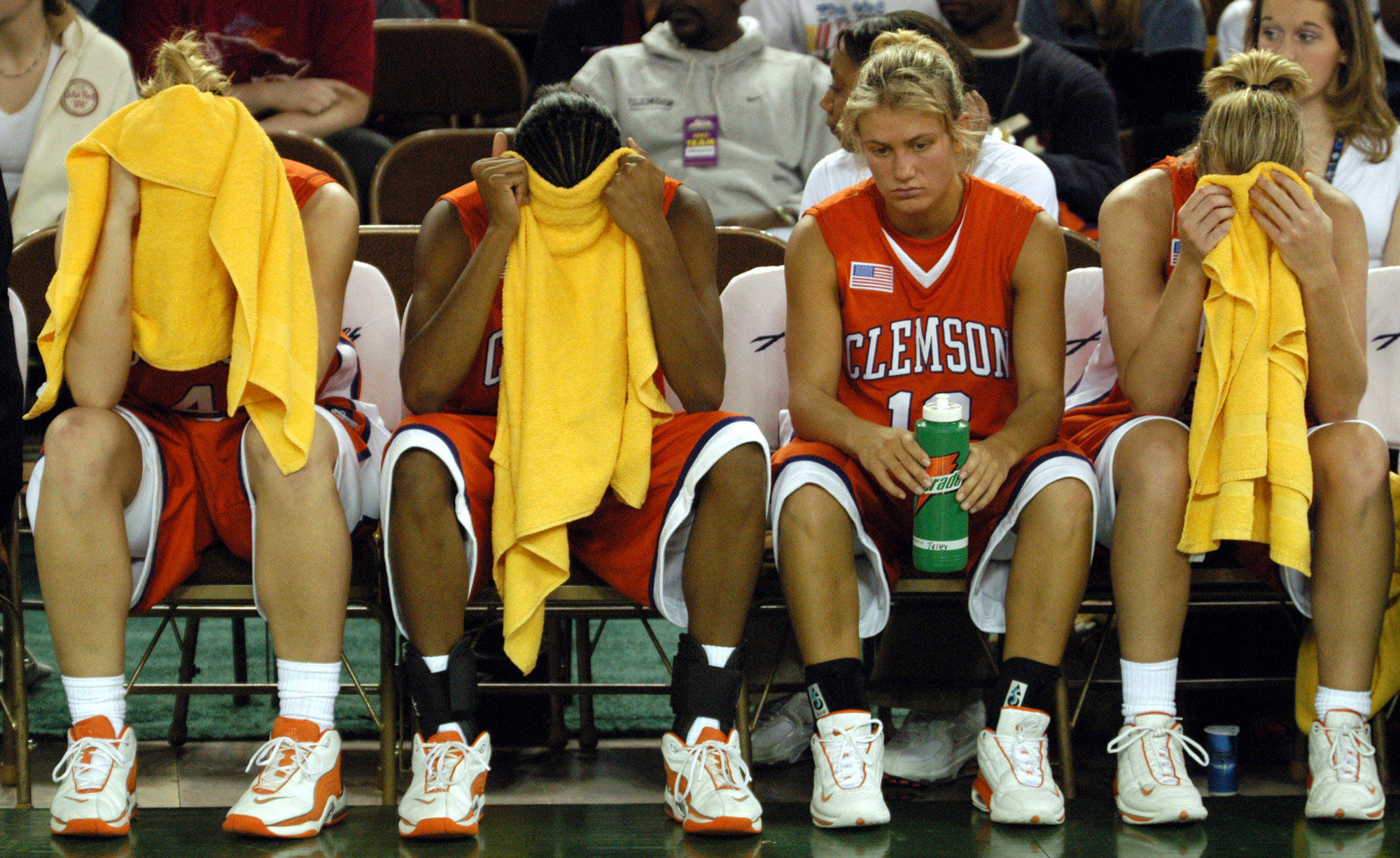ANCHORAGE — Four decades ago, Alaska Anchorage head basketball coach Bob Rachal was looking to promote the program, and while rubbing shoulders with coaches from major programs at the Final Four, he found a way.
The NCAA wanted a presence in all 50 states and had created a rule to help the “geographically disadvantaged.” Colleges were allotted a fixed number of games but could use one of those allotments to play a three-game tournament in Alaska, Hawaii or Puerto Rico. Squeezing in two extra games proved irresistible and the Great Alaska Shootout was born.
“They all wanted to come up and play,” said Lee Piccard, a former Alaska Anchorage vice chancellor. “That’s how it got started.”
Shootout fans over the years witnessed the best of college basketball, with Duke, North Carolina, Kentucky, Michigan State and UCLA winning titles, but the end is near for a tournament that has lost its luster over the years. The 40th Shootout will be the last, a victim of changed rules and competition. The 2017 shootout opened Tuesday with the four-team women’s tournament. The eight-team men’s tournament starts Wednesday.
“It’s simply not financially sustainable,” said Tim McDiffett, acting athletic director, “especially given the economic times of the state of Alaska.”
Alaska’s economy, heavily dependent on the oil industry, is in recession. The NCAA has also long since relaxed rules to allow tournaments in other locations and elite teams can find bigger guaranteed appearance fees at venues that offer beaches instead of borrowed parkas.
“Some events are paying $250,000 to $300,000 to a team to get them to come to an exotic location for an event,” McDiffett said. The Great Alaska Shootout field in recent years has attracted mid-major programs and even that’s too expensive, McDiffett said.
The tournament was initially named the Sea Wolf Classic and almost didn’t happen. Rachal had floated the idea of a tournament but was fired after the 1976-77 season for NCAA rules violations. When Rachal’s replacement opened his desk, he discovered seven contracts signed with schools expecting to play in a tournament in November 1978.
Alaska Anchorage had the choice of trying to cancel contracts or to put on a tournament.
“We honored the contracts and that was the way it went,” Piccard said.
Alaska Anchorage had a year to prepare but lacked one essential: a gymnasium.
University officials sought help from the nearby Fort Richardson Army Post. The Army made its field house available, and when teams and fans showed up for the first tournament in 1978, soldiers served as parking attendants.
Community volunteers were crucial to the success of the tournament in succeeding years, Piccard said.
Families took players and coaches home for Thanksgiving dinners between games. Organizers gave visiting teams an injection of Alaska culture with demonstrations of Alaska Native dancing and dog sled rides.
“You’re 6-10, you come from New York City and you get into a dog sled,” Piccard said. “That’s the way it is.”
And then there were the games.
In 1998, Bob Huggins’ Cincinnati Bearcats defeated No. 1 Duke, the only regular-season game the Blue Devils would lose. With three seconds left, Kenyon Martin caught a three-quarter-length pass and fed a streaking Melvin Levett for the winning layup. Elton Brand, Shane Battier, William Avery, Corey Maggette and Anchorage’s own Trajan Langdon suited up for Duke.
Glenn Robinson of Purdue torched Portland for 41 points in the 1993 championship game, a single-game performance eclipsed in 2009 by Klay Thompson scoring 43 versus San Diego.
In 2001, a then-unknown 19-year-old sophomore, Dwyane Wade, academically ineligible the year before, lead Marquette to victories over Tennessee, Indiana and Gonzaga.
Syracuse made three appearances. The Orange were ranked No.1 when they lost to Arizona, 80-69, in the 1987 title game in Alaska. The Orange in 1996 were beaten by Kentucky in the first round. Syracuse finally won the tournament in 2000, defeating Missouri 84-62 for the title.
“It was a great tournament,” Syracuse coach Jim Boeheim said. “We loved going there, but it’s a long way to go, it’s tough. There are so many warm weather places now. That’s where everybody’s going.”
Piccard will be sad to see the tournament go. He has attended every game, even sparsely attended Saturday morning sessions that saw teams battling to avoid finishing eighth.
“They ought to give me a golden pillow or something,” he said with a laugh.

